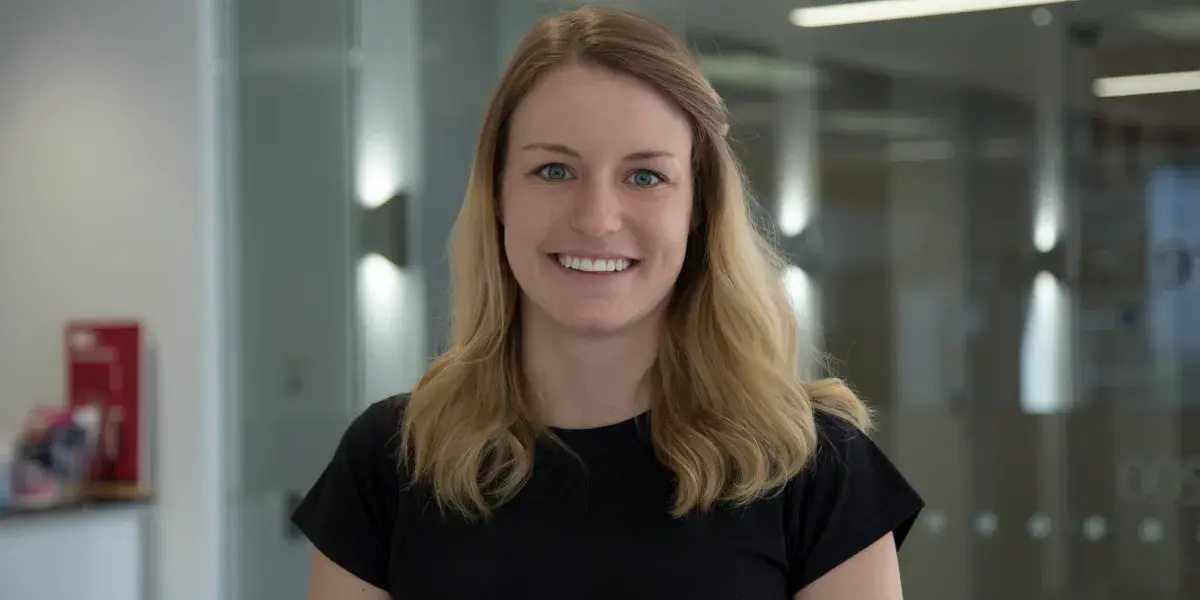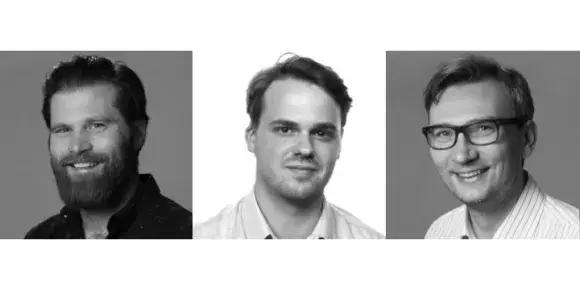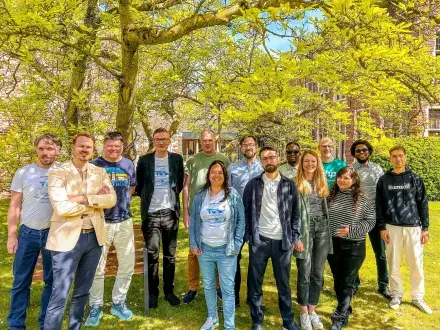Meet Nina Holzapfel, the DrupalCon 2025 Speaker, Helping Teams Tackle Scope Creep

Ramsalt’s Head of Client Operations, Nina Holzapfel, will speak at DrupalCon 2025 about a challenge every project manager knows too well: scope creep. Drawing on her experience guiding Drupal projects from concept to delivery, Nina will share practical ways to spot risks early, set clear expectations, and keep projects running smoothly. She’s a rockstar at keeping our clients happy and projects on track. We sat down with Nina to learn why this topic matters to her and why you should join her session at DrupalCon.
What inspired you to focus your session on scope creep?
Scope creep is common in software projects, especially with agile processes. I’ve seen it in almost every project that went over budget or missed deadlines. I want to raise awareness among project managers, developers, and clients so they can recognize and manage it proactively. Managing scope creep is not about saying “no” to change. It’s about handling it transparently and with the right processes.
In your experience, what are the most common signs that scope creep is happening?
One of the first signs is a lack of information or poorly defined requirements at the beginning of a project. If you don’t start with clarity, you create space for constant reinterpretations later. Another clear sign is weak project workflows. When the process for approving, documenting, or communicating changes is vague or nonexistent, problems grow fast. I’ve also seen that the tendency to please clients at all costs, or to avoid conflict, can make scope creep accelerate dramatically.
Can you share an example of how scope creep impacted a project you worked on?
I worked on a project where the timeline was unrealistic from the start. It was set at four months, but we spent almost two months just sorting out 60% of the core concepts. That left very little time to deliver. On top of that, there were many stakeholders on the client side, and weekly status meetings often became sessions for new change requests. Without strict workflows and a disciplined change request process, the project would have gone off track completely. Even with structure, we still couldn’t deliver within the original scope, budget, or timeline. But what we did deliver was a product the client truly liked and that met their real needs. The key was transparency. By keeping communication open and managing expectations, we avoided frustration on both sides.
What strategies help teams manage scope creep early before it becomes a bigger issue?
Awareness is the first step, and while it sounds simple, it’s often overlooked. Teams need to accept that changes in requirements are inevitable, and the real challenge is how to handle them. Having clear processes in place is critical. Every decision and change must be documented precisely. This creates a shared history that you can always refer to and prevents misunderstandings.
How can project managers balance flexibility for clients with the need to keep projects on track?
It all comes down to transparency and communication. Early in the project, it’s important to have a clear discussion about the project management triangle: budget, timeline, and scope. By asking clients and stakeholders to identify which of these factors are non-negotiable, you create shared understanding from the start. This becomes a guiding principle for the entire project. When new requests come up, you can refer back to the triangle and say, “We can absolutely do this, but it will affect either the budget or the timeline.” Clients feel heard because you are not dismissing their needs, and your team stays protected from unrealistic expectations. This balance only works if the conversation starts early and continues consistently.
What practical takeaways will attendees get from your DrupalCon session?
Attendees will learn to recognize scope creep, understand why it happens, and see practical ways to manage it. Real project examples and tools, including AI, will help them apply these lessons immediately.
Why is this topic important for teams working with Drupal specifically? What do you hope the audience will do differently after your talk?
In Drupal projects, scope creep is especially relevant because of how these projects are usually structured. Many Drupal sites are built by agencies that feel pressure to please the client while also keeping costs low. That combination makes teams particularly vulnerable to scope creep. If it isn’t managed properly, it can hurt client relationships, reduce profitability, and harm team morale and work-life balance. My hope is that after my talk, the audience will pay more attention to setting up clear processes and won’t shy away from honest conversations with clients. Let’s make Drupal projects less stressful and more successful for everyone.
For those who cannot attend DrupalCon, what advice would you give them to better manage scope creep?
Watch the session recording ;-)
Latest news
The public sector is overflowing with knowledge – from reports to evaluations. The challenge has long been to find this information in the sea of PDFs. Ramsalt has been central to the development of Kudos – a national knowledge portal. By implementing groundbreaking AI-based document analysis, we have helped turn a chaotic document base into a goldmine of searchable insight.

DrupalCon Vienna 2025 is almost here. Ramsalt Labs is ready to join the global Drupal community to share insights, contribute, and connect. This event is a chance for us to strengthen Drupal, learn from peers, and meet face to face with clients, partners, and colleagues.

Ramsalt Lab, one of Northern Europe’s leading web development agencies, is pleased to announce a new phase of growth with strategic changes to its leadership team.
Ramsalt is a people-first, remote-first agency built on Scandinavian values of openness, responsibility, and trust. We work with mission-driven clients — from NGOs to universities and publishers — and care about clean code, real collaboration, and a sustainable way of working.





